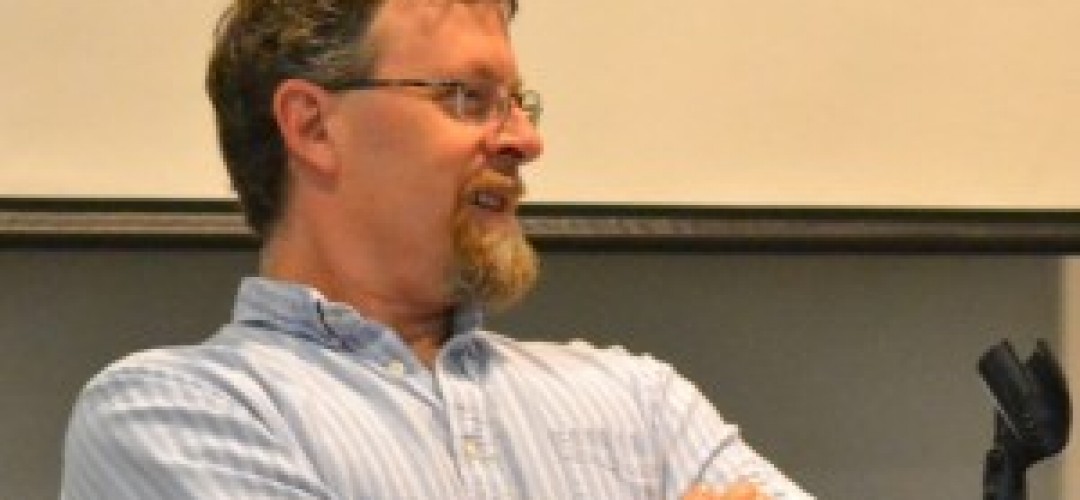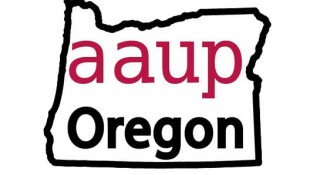United Academics: Campus Climate, Racial Justice, Academic Freedom

 by Michael Dreiling, President, UAUO
by Michael Dreiling, President, UAUO
At the UO, we’ve had the unfortunate opportunity of witnessing poor role-modeling. First, a professor donned blackface at a Halloween party and then was mimicked on campus by a group of white teens. Then, there was the election and its aftermath of hate crimes, including vicious racist threats to students of color at the UO. Our local is in sync with the rest of the higher education labor movement in confronting bigotry of all types and I am proud to point our members to the recent issue of Academe for some timely reflection on campus activism against racism. There are several articles worth a read (remember, as an AAUP member, you have access and should have a password in your email).
In the current issue, Peter Halewood (Albany, Law), discussing recent campus activism on race, outlines the “opportunities” student activists “have created for us to make our curricula more representative and inclusive, to push for greater diversity in hiring and retention of faculty, and to resist the corporatization of the university” (p. 12). Halewood’s piece explains how, contrary to some perceptions, recent campus activism aligns with and can strengthen academic freedom and freedom of expression. First, Halewood argues that “campus organizing and advocacy against racial injustice and inequality have been to a large extent mischaracterized as primarily about restricting free expression. Some of this mischaracterization is attributable to attempts to mock, marginalize, and trivialize progressive advocacy, but some of it stems from misunderstandings about and exaggeration of some of the language of the new activism, specifically terms like trigger warnings, microaggressions, and safe spaces.” What we have observed at the UO is similar to what students have protested elsewhere in the country – racist chants in fraternities, blackfacing for Halloween, campus buildings named after white supremacists or slave owners, etc. According to Halewood, a law professor, each can be seen as impacting learning and potentially subject to legal prohibitions on discrimination.
Our students remind us that the academic freedom itself needs racial contextualization. Halewood provides several examples, further explaining that “Student activists have underscored AAUP principles in arguing that college education should be driven not simply by market imperatives.” With a wave of hate crimes now impacting students on campuses across the country, those AAUP principles and our support for antiracist activism will be necessary to combat forces that would erode efforts at inclusion, equity and diversity. Our University Senate will be taking some initial action on these matters in the days ahead. More will surely follow. https://blogs.uoregon.edu/senate/2016/11/12/proposed-senate-resolution-reaffirming-our-shared-values-of-respect-for-diversity-equity-and-inclusion/
In the meantime, we can be assured that we can stand firm in our commitment to both free expression and the condemnation of bigotry, discrimination and racism. Further, we believe the greatest threats to our speech rights are presently external to the university. We need not choose between, for example, anti-racism and free speech. We boldly support the first and courageously boost the latter. Hate speech in all of its forms – bigoted, misogynistic, heterosexist, racist – and the violence it stirs is not welcome and remains antithetical to our professional mission.

